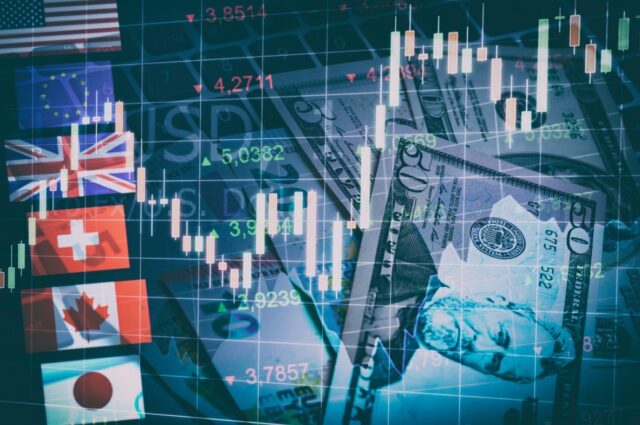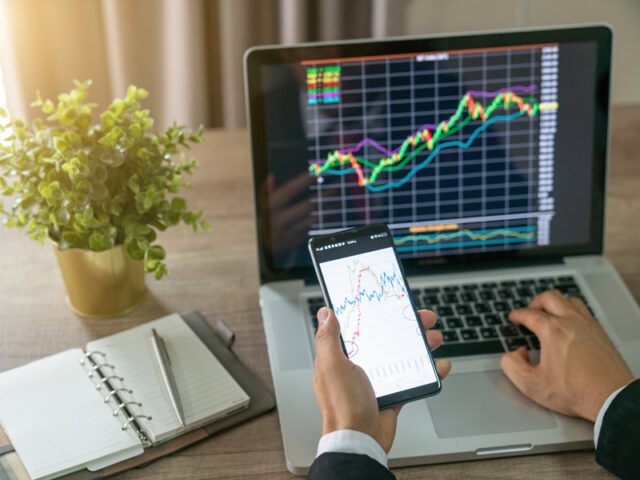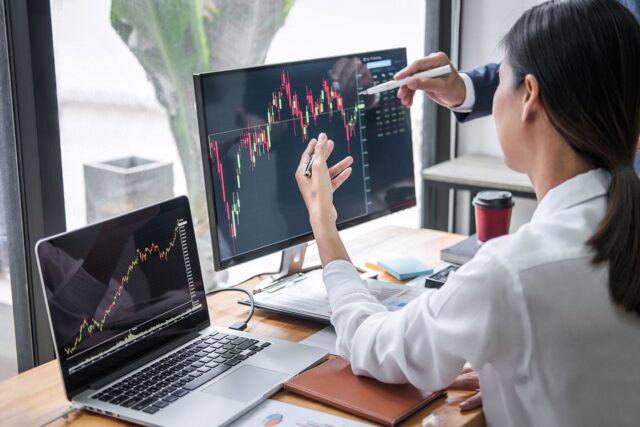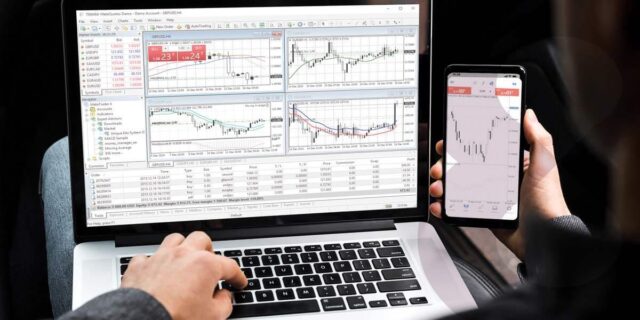
Have you ever wondered how some people manage to make huge fortunes online? How has the digital world become so popular and profitable in the last decade?
If you are among the majority of enthusiasts worldwide who want to start an online business, then you’re in the right place! We are here to present to you one of the top five profitable online businesses at the moment that you can consider doing in the future.
It’s about Forex Trading! Although at first glance, it sounds complicated, the good news is that it is not at all. Anyone can do it and make money. Nonetheless, let’s start from the beginning and the definition, shall we?
What is Forex Trading exactly – get all the information

Forex represents an acronym of two different words: “Foreign” and “Exchange.” When we say Forex exchange, we mean the act of selling one currency for another simultaneously for reasons such as commerce, trading, and tourism. It is all happening on the biggest decentralized financial market in the world known as the Foreign exchange market, i.e., the Forex market.
The market is available to traders non-stop 5.5 days a week. It has a daily turnover of approximately 6.6 trillion dollars which makes it the most liquid market. Traders trade currencies on the Forex market only in Currency Pairs such as EUR/USD, USD/GBP, GBP/JPY, and many other currencies.
The role of a relevant Forex broker
The role of a relevant Forex broker is to provide traders with safe and secure access to trading platforms. To choose the best possible broker online, it is essential to read reviews such as the Soltechx Review in the first place. For additional information, check MyForexNews.com.
The reason is that the internet is filled with scammers and fraudulent brokerage sites that may harm people to steal their money, identity, or other personal information.
A good Forex broker is regulated by a financial regulatory body, offers relevant educational materials, has 24-hour customer service, and has positive reviews across brokerage forums and other sites.
How can you start your Forex Trading business?

Now that you have read a lot about Forex Trading and the broker, we assume that you are even more intrigued to start your career in this industry.
To do this most effectively and quickly, here are some helpful tips in this step-by-step guide:
- Learn all the basics about the Forex in general. Read the news on the worldwide geopolitical scene since it affects the price movements on the Foreign exchange market.
- Find a good and regulated Forex broker to provide you with secure access to trading platforms.
- Choose your preferred currency pairs that you wish to trade.
- Open a demo account with your broker to gain relevant experience before you start trading with real money.
- Try out different Forex trading strategies and techniques until you find the one that works the best for you.
- Open the real Forex trading account, start your trading and ensure you keep track of your progress.
With that in mind, let’s look at some of the outlined tips in a more in-depth overview.
Learn the basics
A boxer’s grit and determination aren’t enough to get him a knockout. He researches the scoring scheme, his opponent’s movements, punch combinations, and obtainable techniques, all of which help him win the game.
You must at least understand pips, leverage, and risk mitigation, and also how broker implementation and spreads affect your trades.
Investigate the industry, its key players, and the variables that impact currency exchange rates.
Forex traders should pass a series of exams that demonstrate their expertise and knowledge in these areas. The first one is the Securities Industry Essentials (SIE) exam, covering topics like financial markets, regulations, and investment products. Once you have successfully passed the Securities Industry Essentials (SIE) exam, the next step in your journey to becoming a forex trader is to prepare for and take the Series 7 exam. To prepare for the Series 7 exam and ensure success, aspiring forex traders can avail themselves of online resources like free Series 7 practice exam and questions. These resources are designed to help candidates develop a strong understanding of the topics covered in the exam and enhance their expertise in the securities industry.
Trade on demo accounts

Most successful traders skip the demo phase and go straight to live to trade. After all, when real money is on the line, trading takes on a whole new meaning.
Demo trading, on the other hand, enables you to not only evaluate your trading platform for revenue growth but also to improve your skills without having to worry about making money.
This is where you start recognizing your system’s flaws and the massive trading concerns you need to address. You should not proceed to live trading if you cannot profit while trading demo.
Establish a trading system
This is where you begin to create your combinations. To discover the ones that best suit your trading character and assets, experiment with various currency clusters, chart patterns, time frames, and risk management techniques.
You can also try out other people’s methods, but keep in mind that just because one trader’s tactic worked doesn’t mean it will work for you.
You can construct your trading system once you’ve identified the variables that result in more victories than failures.
Keep tabs on your progress

This is the most challenging but crucial step. This is where you improve the profitability of your system. Set objectives, benchmarks, and performance indicators to track how well your system works and how well you implement it. At this juncture, keeping a trading journal is strongly advised because it will show you which elements work and which do not.
The procedure can be sped up even more by constant practice. Adhere to your initial rules for a while to give it a try, but don’t be afraid to tweak it if the statistics support it.
The forex market isn’t a quick-and-dirty way to get rich. It’s also not a game where you can use universal cheat codes to make it simpler. Trading is a profession, and it takes time, money, a slight chance, and, most significantly, continuous preparedness to succeed.
Your success rate will increase significantly if you combine excellent assessment with practical deployment and suitable trading, like many other skill sets, results from a combo of skill and hard work.
The Verdict – Do Not Let Negative Emotions Affect Your Trading
The essential tip is not to let negative emotions affect your trading career. Indeed, there will be times when things won’t turn out the way you wanted them to. Nonetheless, stay positive and keep up the good work until you start profiting with Forex trading again. Remember, only the most persistent traders manage to earn lots of money! Good luck!







